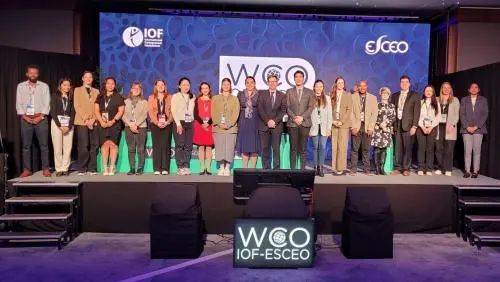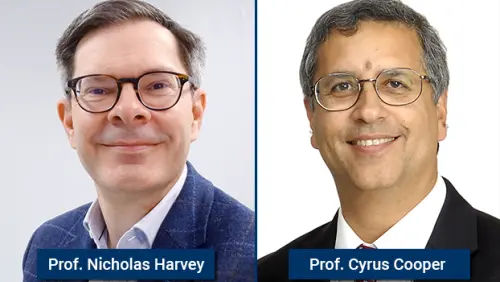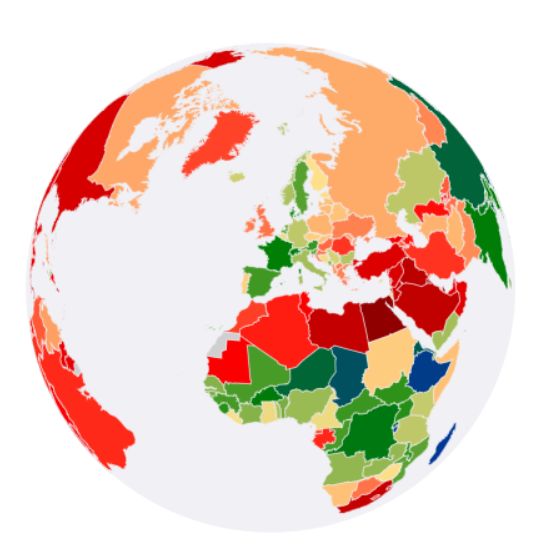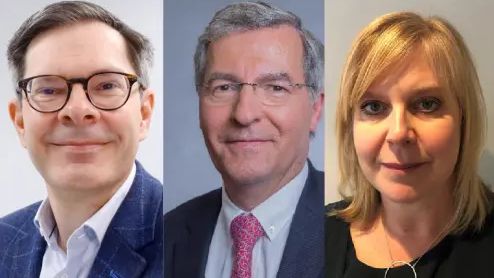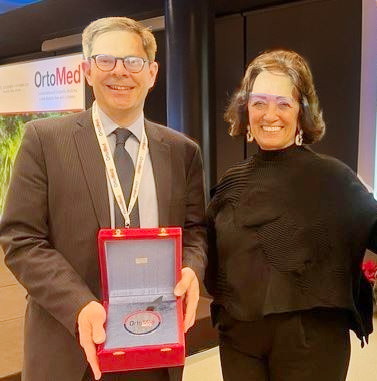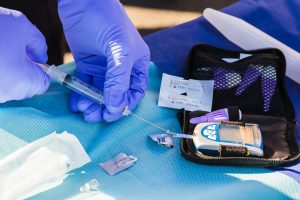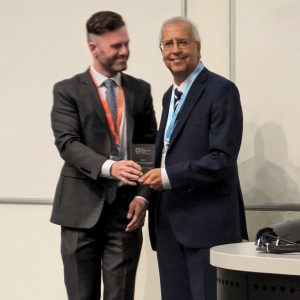[vc_row][vc_column][vc_single_image image=”4219″ img_size=”full” alignment=”center”][vc_row_inner top_margin=”page_margin_top_section”][vc_column_inner][vc_column_text]Ethnicity and place of residence in the UK influence the risk of dying in the year after breaking a bone, a new Southampton study has shown.[/vc_column_text][vc_column_text]Researchers at the Medical Research Council Lifecourse Epidemiology Unit, University of Southampton, undertook an analysis of the UK Clinical Practice Research Datalink database and calculated the risk of an individual dying within a year after experiencing a fracture. They also examined whether this risk varied according to age, sex, ethnicity and place of residence in the UK.[/vc_column_text][vc_column_text]The risk of dying within one year after a fracture rose with age and was higher for men than women. The risk of dying in the year after a fracture was lowest for women living in London, and up to 37% greater in those living in other parts of the country. Relative to background mortality rates, individuals experiencing a fracture in the North West of England had a 3.5 times increased risk of dying in the next year, compared with a 2.9 times increased risk for those living in London. Black women, and women from Arab ethnic backgrounds, were at greater risk of dying within one year after a fracture than were white women. Although mortality was generally higher in men than women, much less variation between ethnic groups and by geographic location was demonstrated amongst men.[/vc_column_text][vc_column_text]The study was funded by the National Osteoporosis Society and published in the journal Osteoporosis International.[/vc_column_text][vc_column_text]Professor Nicholas Harvey, Professor of Rheumatology and Clinical Epidemiology at the MRC Lifecourse Epidemiology Unit, University of Southampton, led the study with Dr Corinne Klop, Academic Pharmacoepidemiologist at Utrecht University in The Netherlands. He said: “Our study has provided insights into factors that may influence risk of dying in the first year after a fracture, across different sections of the population. Further work will be needed to fully understand what underlies these differences, for example variations in diet, lifestyle, body build, employment and genetic factors may all contribute.[/vc_column_text][vc_column_text]However, our demonstration of differences in mortality rates after fracture by ethnicity and UK geographic location will clearly be helpful in targeting health resources to those at greatest risk. Given the high rates of fracture, particularly in the elderly, our findings provide real support for strategies aimed at preventing osteoporosis and related fractures.”[/vc_column_text][vc_column_text]Professor Cyrus Cooper, Professor of Rheumatology and Director of the MRC Lifecourse Epidemiology Unit, University of Southampton, added: “This study forms part of a larger programme of work addressing risk factors for fracture across the lifecourse, and demonstrates the importance of the University of Southampton and MRC Lifecourse Epidemiology Unit in leading large, UK wide analyses on the internationally leading UK Clinical Practice Research Datalink dataset. These findings will be built upon in a wider programme of analyses to document the burden of osteoporotic fracture in the UK, and will have important messages for public health planning in future years.”[/vc_column_text][/vc_column_inner][/vc_row_inner][vc_row_inner top_margin=”page_margin_top_section”][vc_column_inner][vc_column_text]Notes to editors[/vc_column_text][vc_column_text el_class=”reflist”]
- A copy of the paper entitled: The epidemiology of mortality after fracture in England: variation by age, sex, time, geographic location and ethnicity is available from Media relations upon request.
- The records from the UK Clinical Practice Research Datalink database used in the study covered the period from 1988 to 2012.
- The Medical Research Council is at the forefront of scientific discovery to improve human health. Founded in 1913 to tackle tuberculosis, the MRC now invests taxpayers’ money in some of the best medical research in the world across every area of health. Thirty-one MRC-funded researchers have won Nobel prizes in a wide range of disciplines, and MRC scientists have been behind such diverse discoveries as vitamins, the structure of DNA and the link between smoking and cancer, as well as achievements such as pioneering the use of randomised controlled trials, the invention of MRI scanning, and the development of a group of antibodies used in the making of some of the most successful drugs ever developed. Today, MRC-funded scientists tackle some of the greatest health problems facing humanity in the 21st century, from the rising tide of chronic diseases associated with ageing to the threats posed by rapidly mutating micro-organisms. mrc.ac.uk
- The National Osteoporosis Society is the only UK-wide charity dedicated to improving the prevention, diagnosis and treatment of osteoporosis and fragility fractures. We offer free support and information to people affected by osteoporosis and fragility fractures, including a Helpline that receives more than 13,000 enquiries a year. We are a charity, mainly funded by individual donations and legacies. We do not receive money from the government.
- Through world-leading research and enterprise activities, the University of Southampton connects with businesses to create real-world solutions to global issues. Through its educational offering, it works with partners around the world to offer relevant, flexible education, which trains students for jobs not even thought of. This connectivity is what sets Southampton apart from the rest; we make connections and change the world. http://www.southampton.ac.uk/ http://www.southampton.ac.uk/weareconnected
#weareconnected
[/vc_column_text][/vc_column_inner][/vc_row_inner][/vc_column][/vc_row][vc_row top_margin=”page_margin_top_section”][vc_column][vc_column_text]For more information:[/vc_column_text][vc_column_text]Becky Attwood, Media Relations Officer, Tel: 02380 592128, Mob: 07342060429, Email: r.attwood@soton.ac.uk[/vc_column_text][/vc_column][/vc_row]

